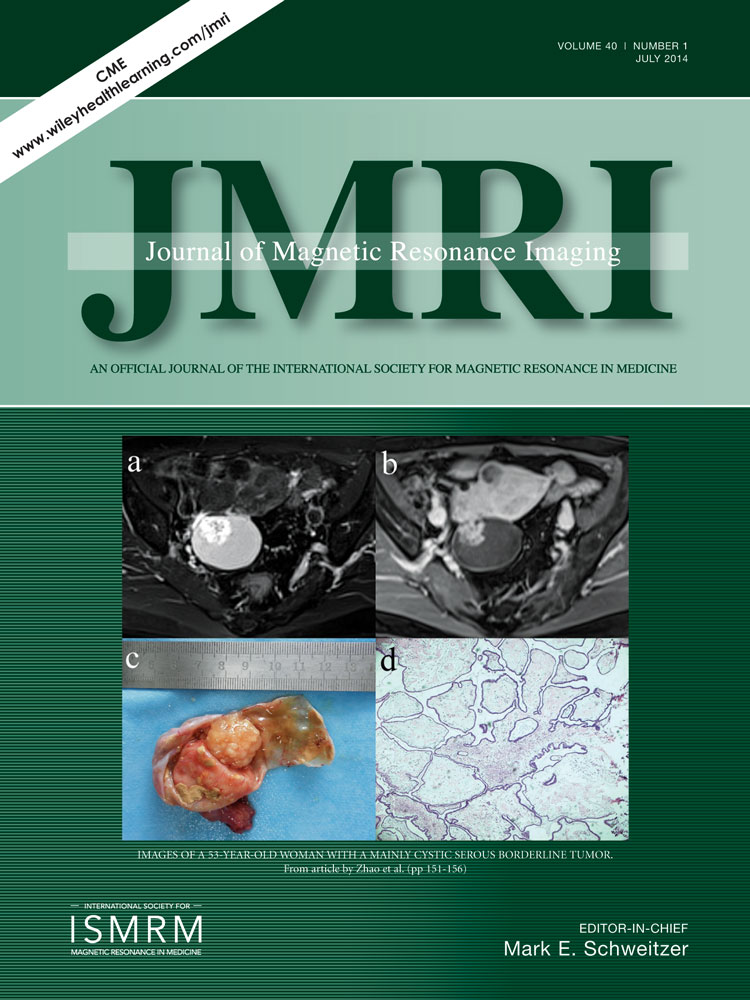Machine learning in preoperative glioma MRI: Survival associations by perfusion-based support vector machine outperforms traditional MRI
Abstract
Purpose
To retrospectively evaluate the performance of an automatic support vector machine (SVM) routine in combination with perfusion-based dynamic susceptibility contrast magnetic resonance imaging (DSC-MRI) for preoperative survival associations in patients with gliomas and compare our results to traditional MRI.
Materials and Methods
The study was approved by the Ethics Committee and informed consent was signed. Structural, diffusion- and perfusion-weighted MRI was performed at 1.5-T preoperatively in 94 adult patients (49 males, 45 females, 23–82 years; mean 51 years) later diagnosed with a primary glioma. Patients were randomly assigned in training and test datasets and the resulting DSC-based survival associations by SVM were compared to traditional MRI features including contrast-agent enhancement, perfusion- and diffusion-weighted imaging, tumor size, and location. The results were adjusted for age, neurological status, and postoperative factors associated with survival, including surgery and adjuvant therapy.
Results
For 1- (26/33 alive, 11/14 deceased), 2- (15/21, 21/26), 3- (12/16, 27/31) and 4- (12/15, 28/32) year survival associations in the test dataset (47 patients), the SVM routine was the only biomarker to consistently associate with survival (Cox; P < 0.001).
Conclusion
The automatic machine learning routine presented in our study may provide the operator with a reliable instrument for assessing survival in patients with glioma. J. Magn. Reson. Imaging 2014;40:47–54. © 2013 Wiley Periodicals, Inc.




